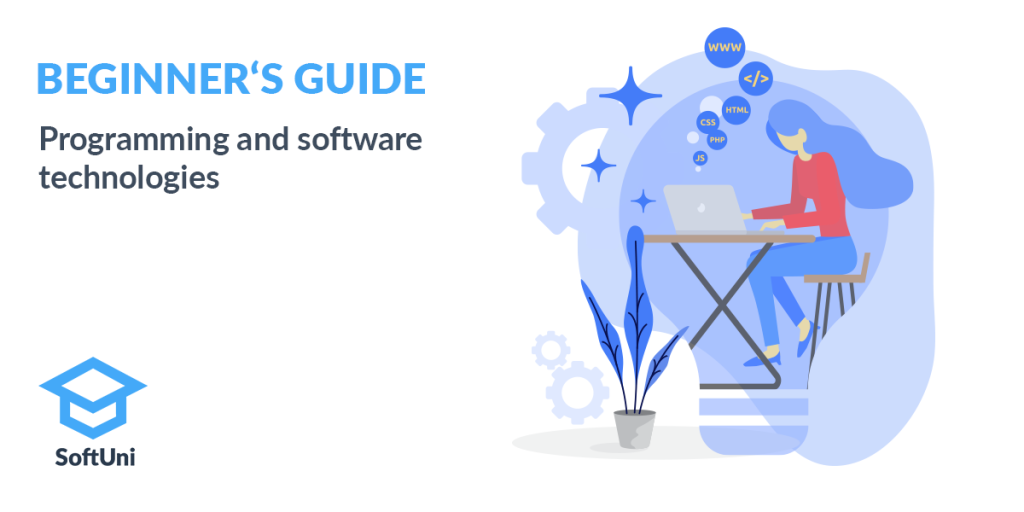We are constantly hearing that programming and IT knowledge are becoming increasingly important, demanding, and promising. They say there are many open positions in the software industry, as well as opportunities for growth and development. But what exactly is programming and software development, and which are the most popular programming languages today, we will try to explain here.
What is programming?
The essence of programming is to manage how the computer works at its various levels. The management is done by using commands from the programmer to the computer. These commands are written and executed uninterruptedly by the computer. They are numerous, and different types of programming languages are used to conduct them.
Programming languages
Through programming languages, developers give instructions for the computer to execute. Program languages can be used to create programs that control the behavior of the computer or implement algorithms. Thousands of programming languages are created and continue to be created each year. Some of them are becoming widely used. Examples are: C#, Java, C++, PHP, JavaScript, C, etc
The most popular programming languages today
It is difficult to determine the exact order of the most popular programming languages today but according to GitHub an Inc at the forefront are Java, JavaScript, C#, C/C++, PHP, Python, Ruby, Objective-C/Swift.
Many of these languages are taught in the Software University program. The important thing is to grasp the process of breaking down a problem into subtasks and the sequence of writing code in order to find a solution. Once they have this base, the good programmer can switch between languages because their syntax is quite similar.
Here is a brief description of the abilities of the most popular languages:
- Java – Originally, when it was created in 1991, the Oracle – Java programing language was designed to program smart TVs. Today, however, it is used to develop Android applications, with the mobile operating system itself being developed on Java. “Java” usually means not only the Java language, but also the Java and Java EE platforms. Complicated server-side systems and also web based software, as well as bigger industrial systems that include complex processing and require big amount of reliability, are written in this language.
- C# – This programming language is another variation of C. It was created by Microsoft and embodies many of Java’s concepts. C # is used to build numerous software applications and systems: from heavy server logic (where it competes with Java) to web applications (competing with PHP) and desktop applications (where it virtually has no competition on the Windows platform) as well as mobile applications (where it competes with Java for Android devices and Objective-C for iOS devices). C # is very suitable for beginners, and therefore it is introductory in SoftUni’s program.
- JavaScript – JavaScript is a scripting language that is mainly used to build user interfaces in web and mobile applications. JavaScript us used for is writing the client part of applications (what the user sees) and is rarely used for the server part (logic, storage and processing of data). The Node.js technology allows JavaScript to be used for server applications, but for one reason or another it is not used extensively. JavaScript has nothing to do with Java except for the name similarity.
- PHP – PHP is one of the most common languages in the web – some say it covers 1/3 of all websites. Sites like WordPress, Facebook, Yahoo use it. PHP is a language for creating dynamic web sites and client web applications. PHP is almost always used along with HTML, CSS and JavaScript.
- C++ – It is used mainly for software products like games, office applications, graphic and video editors and operational systems. Objective-C and Swift – Objective-C was the main programming language used by Apple for their operational systems OS X and iOS until June 2014 when Apple presented their own programming language Swift. Little by little since then Apple has migrated their software products to be maintained by Swift. Swift was created with the idea to be resistant to wrong code, in other words, safer than Objective-C, as well as to use less code.
Which programming language to start with?
Many people ask which programming language is best to start with. That is a complicated question and it doesn’t have just one answer.
Our advice is to learn one more general programming language (like Java or C#) so the main concepts of programming can be understood. It’s a good idea to learn one script language as well (like JavaScript or PHP). In addition, learn main technologies in the database and web software development as well as data structures and algorithms and you will have a solid knowledge base.
What is front-end and back-end development? What is the difference?
Software technologies and programming languages are being used for different purposes and creating different kinds of software. In general, we can unify them in the following categories:
- Technologies for user interface (front-end): HTML, CSS, JavaScript;
- Technologies for server-side programming: C#, Java, PHP, Python;
- Technologies for data manipulation (back-end): databases and SQL, ORM technologies, web services and REST;
- Other technologies and platforms: mobile platforms, cloud technologies, software engineering, operating systems, built-in systems, low level languages like C and C++;
Sources for learning programming
Just attending classes is far from enough to enter and advance into such a dynamic profession as that of a developer. This is why we recommend researching and learning things on your own. All course resources by
SoftUni are available on our site:
- „Fundamentals of Computer Programming with C#“ – authors Svetlin Nakov and Co.;
- Stack Overflow – One of the most visited sites by all developers. There you can find answers to almost all of your questions (and if you don’t succeed you can always ask in the forum).
- Computer Programming in Quora – in the forum you can find answers to frequently asked questions like “What is programming?”, “Why should I bother studying it?” Which is the best book for my programming language?” etc.



